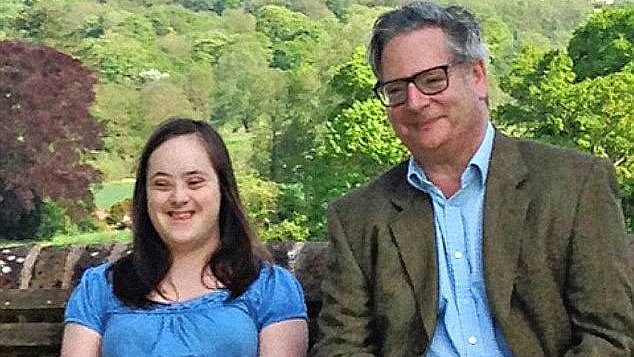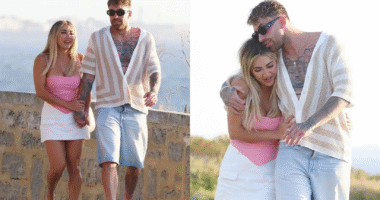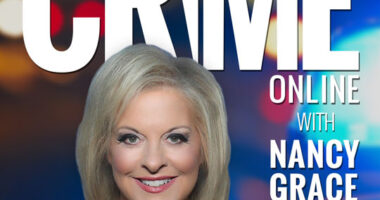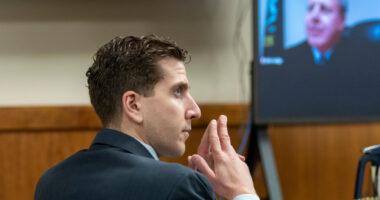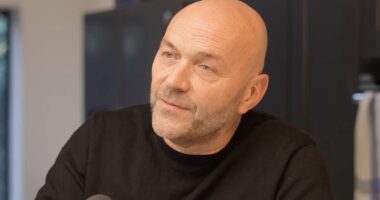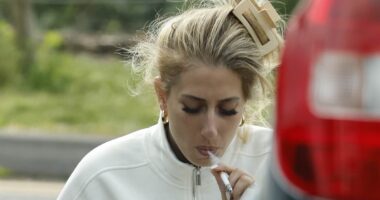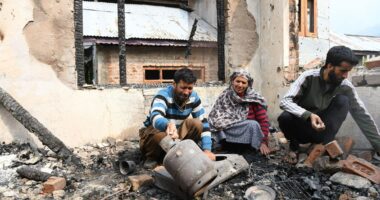When you hear the words Nottingham University Hospitals NHS Trust on the news, you can be fairly confident this will not be a story with a happy ending. Especially if it concerns babies: the Trust is the subject of the largest inquiry into defective maternity care in the history of the NHS.
And last Thursday the BBC News at Ten had a grim scoop, along similar lines. It broadcast interviews with two couples who had agreed to abort their unborn children after Nottingham City Hospital told them it had detected ‘serious genetic conditions’.
Only, it wasn’t true: post-mortem analysis showed that the babies had no such conditions.
A third family told the BBC they had been repeatedly told that scans of their unborn male child showed he was unable to empty his bladder, allegedly an indicator of a condition ‘incompatible with life’.
But on the day they went in for the termination – which had persistently been offered by doctors at the Trust – the father insisted on one last scan. While it was being conducted, the baby’s bladder emptied. The parents immediately pulled out of the scheduled termination. But, according to the BBC, the parents say ‘the Trust has never given them an explanation about what happened’.
Much worse happened to Carly Wesson and Carl Everson, who in 2019 were told that initial scans indicated their unborn daughter, whom they had already named Ladybird, had a ‘high chance’ of having Down Syndrome.
They were given a follow-up test, known as chorionic villus sampling, which, according to the foetal care team at Nottingham’s City Hospital, indicated the child had a different genetic abnormality, Patau’s Syndrome, which typically results in spontaneous miscarriage or death in infancy.
Ms Wesson, now 43, said that following discussion with the medics: ‘We thought the best option was to end the pregnancy because the baby was suffering.’
Six weeks after the termination, they were – to their surprise – called in for a meeting at the hospital where they were told that, in fact, their daughter had no genetic abnormality. Cruelly, according to Ms Wesson, a doctor there told her: ‘Well, you could have miscarried anyway.’

Six weeks after the termination, Carly Wesson and Carl Everson were told that their daughter, whom they had already named Ladybird, had no genetic abnormality
An official investigation concluded that the Trust ‘must take responsibility for an outcome which would not have occurred were it not for a series of deficiencies in care, knowledge and process’.
The chief executive of the Trust, Anthony May, told the BBC: ‘I know we failed Carly, Carl and their baby, Ladybird… we are 1739137505 ensuring we have robust processes for checking, communicating and monitoring results.’
I take a particular interest in this because our younger daughter, Domenica – who will turn 30 on June 1 – has Down Syndrome. We have never forgotten how unremittingly bleak was the prognosis given to us by the medics when she was born. They behaved as if we were the victims of a tragedy, while listing the various problems which they believed would afflict our newborn child.
As I have written before, Domenica is not just a joy to her parents, but a woman of boundless enthusiasm for life, and has what might be described as a gift for hilarity. To those who might say this is mere personal anecdote, I’d refer them to a paper published some years ago by the American Journal of Medical Genetics called ‘Self-perceptions from people with Down Syndrome’, based on a survey of 300 individuals with the condition.
It concluded: ‘Nearly 99 per cent of people with DS indicated they were happy with their lives, 97 per cent liked who they are and 96 per cent liked how they look.’
Domenica is an example of this. When I tell her, ‘You’re beautiful’, she invariably responds: ‘I know, Daddy.’
Yet when medics put pressure on parents-to-be to ‘terminate’ such people – and the accounts of this pressure are legion – they invariably use the word ‘suffering’. As in: ‘Suffering from Down Syndrome.’ It is hardly surprising that Carly Wesson used the same word when explaining why she and her partner took the decision to end Ladybird’s life.
In some cases, I suspect that the idea that a person with Down Syndrome will have a life of ‘suffering’ is convenient for parents who, for understandable reasons, don’t want the burden of a child with disabilities, but find it easeful to convince themselves that they have purely altruistic reasons for termination.

I take a particular interest in this because our younger daughter, Domenica – who will turn 30 on June 1 – has Down Syndrome, writes DOMINIC LAWSON (pictured with Domenica)
There are conditions much more severe than Down Syndrome (though, paradoxically, often much less easy to detect in utero). In Saturday’s Mail, Ian Birrell wrote a profoundly moving article about the recent death of his daughter Iona, at the age of 32.
Iona had a very rare genetic condition, which meant she could not see, walk or talk – and also had ‘complex epilepsy’. If any condition could be described as ‘suffering’, you’d think Iona’s would justify the term.
Yet Ian wrote: ‘She grew into a funny, kind, generous and trusting woman. So many people have spoken to us since her death about her joy… At the funeral, we showed a short video of Iona smiling and dancing in delight.’
This false idea of the inevitable ‘suffering’ of those with genetic conditions has now been put into sharp perspective with the so-called ‘assisted dying’ legislation, in the name of the Labour MP Kim Leadbeater.
As a private member’s Bill – though backed by Sir Keir Starmer – the proposal is rushing through the legislature with scandalous rapidity. Five hours’ parliamentary debate was deemed sufficient for it to pass at second reading – a pathetic fraction of the 700 hours that the Commons chamber had devoted to discussion of the 2004 Bill outlawing the termination of foxes’ lives with the use of hounds.
Never was there a better example of the saying that the English regard the lives of humans less passionately than we do those of animals.
Anyway, Leadbeater’s Bill, as originally drafted, specifically allows doctors to suggest the idea of ‘assisted dying’, even if the patient had never raised the possibility themselves. What would this mean for people with learning disabilities, who may be highly suggestible?
Bear in mind what happened at the outset of the Covid pandemic, when the National Institute for Clinical Excellence (NICE) issued a scale designed to govern treatment. Categories 7 to 9 were to be denied life-saving treatment.
Category 7 was defined as ‘completely dependent for personal care, from whatever cause, physical or cognitive. Even so, they seem stable and at no risk of dying’. That exactly defined my daughter Domenica.
It was only after the learning disability charity Mencap discovered this, and raised hell, that NICE amended its scheme to make clear that those with cognitive impairments should not be simply left to die if they contracted Covid.
It’s hardly surprising that the National Down Syndrome Policy Group, along with 60 other organisations in this field, have just issued what they describe as ‘a critical appeal to Parliament concerning the proposed Assisted Dying Bill’. And they warn MPs: ‘The Bill lacks the robust protections to ensure the safety of the vulnerable, particularly those with learning disabilities.’
From the first breath to the last, we must fight the tendency to write off the lives of people like Domenica and Iona.
